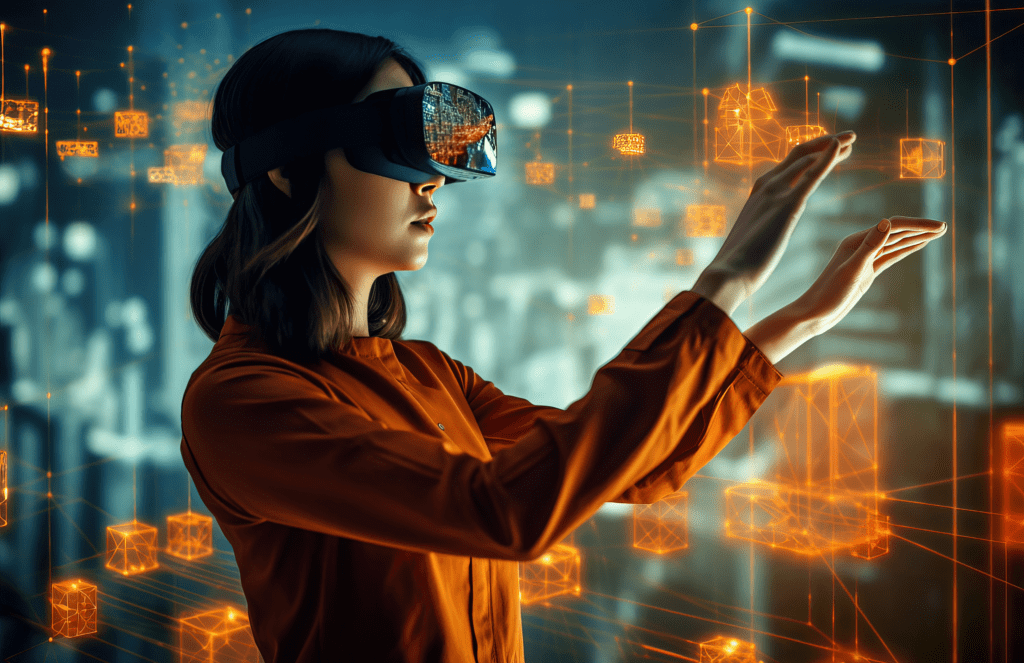From the Desk of Ronia Kruse: The Future of Work and AI
There is a common misconception that AI will replace human workers. Fear feeds into the psyches of many individuals, as they question whether they will lose their job in the coming years. The reality is that AI is augmented intelligence, not replacement.

Last week, I attended a conference, and during a networking session someone asked me if I was concerned about the future of work as it relates to generative artificial intelligence (AI). They wanted to know specifically if I was worried about the loss of jobs that could ensue due to AI “taking over.” I thought this was a great topic and one that should be discussed more openly, more often. My answer at the time was, “no, I’m not worried, but I believe there is work to be done.” Here are my thoughts behind my answer.
As a CEO for over 24 years, I have witnessed firsthand the transformative power of technology on the workplace. The rise of artificial intelligence (AI) has been exponential, particularly in the last 12 months, and we find ourselves at a pivotal moment in history, one that demands a strategic shift in how we envision and shape the future of work.
AI isn’t some buzzword or trend that might go away; it’s a paradigm shift that is revolutionizing the way we operate, communicate, and innovate. It’s a powerful tool that, when harnessed correctly, can augment human capabilities, increase efficiency, and drive unprecedented levels of productivity. As a CEO, I firmly believe that our ability to adapt and leverage AI will define our success in the years to come.
But with these incredible opportunities for increased productivity, another emotion is at play – fear. There is a common misconception that AI will replace human workers. Fear feeds into the psyches of many individuals, as they question whether they will lose their job in the coming years. The reality is that AI is augmented intelligence, not replacement. AI is best suited to augment human abilities, freeing us from repetitive tasks and enabling us to focus on creative and strategic endeavors. We should view AI as a valuable collaborator, not a competitor. According to the World Economic Forum, “By 2025, machines could displace about 85 million jobs — but create 97 million new roles.”
Here are some key aspects of the future of work that I believe are key to organizational success:
- Upskilling and Reskilling: To thrive in an AI-powered world, organizations must invest in upskilling and reskilling their workforce. This means providing employees with the tools and training necessary to work alongside AI systems effectively. Encouraging a culture of lifelong learning is crucial.
- Remote Work and Flexibility: AI-driven technologies have proven instrumental in facilitating remote work and providing the flexibility that employees now demand. This trend is likely to continue, and companies must adapt to support a hybrid workforce that blends remote and on-site work seamlessly.
- Data-Driven Decision-Making: AI generates vast amounts of data that can inform smarter decision-making. As a CEO, I see AI as a means to enhance our ability to gather, analyze, and act on data in real-time, driving greater competitiveness and innovation.
- Ethical Considerations: The responsible use of AI is paramount. CEOs must prioritize ethical AI practices, ensuring transparency, fairness, and accountability in AI-driven decision-making. We must guard against bias and discrimination, ensuring AI serves all stakeholders equitably.
The rise of AI presents us with an incredible opportunity to shape a future of work that is more efficient, innovative, and inclusive. As a CEO, I see AI as an enabler of human potential, not a threat to it. By embracing AI, investing in our workforce, and promoting ethical practices, we can navigate this transformative era with confidence and resilience. The future of work is being redefined as we speak, and it is up to us as leaders to steer our organizations toward success in this AI-powered landscape.

